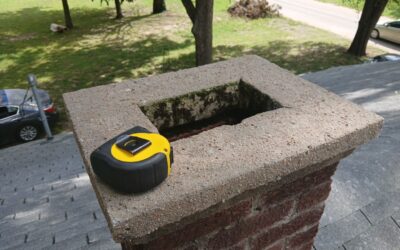Disclosure: This article is written for educational purposes and should not be considered legal advice. The intended audience of these recommendations are property managers/owners for multi-unit or multi-building real estate complexes as a tool for evaluating qualified contractors and mitigating construction liability. While all recommendations and guidelines herein are general, Rhoden Roofing, LLC is a Limited Liability Company registered in the state of Kansas.
By law, many states have minimum insurance requirements for roofing companies, but these “floor” guidelines are set with residential single-family projects in mind rather than commercial or multifamily properties. As a multifamily property owner or property manager, you will have to do your own research and evaluation to determine appropriate contractor coverage to fulfill the liability needs of your construction project.
Our team operates large-scale roofing projects across Kansas and the lower Midwest, and in doing so, has discussed appropriate liability coverage with property managers on all types of commercial and multifamily properties. We have aggregated the many questions asked and findings over the years into recommendations for property managers who are facing a large upcoming construction project – especially in roofing or overhead work.
Certificates of Insurance
Perhaps the single most important documentation a roofing contractor can supply you with is a certificate of insurance. This document details exactly what liability coverage the contractor has in place, and which coverage they don’t.
As discussed in the video, contractors working on projects in the state of Kansas are required to carry a minimum of $500,000 in general liability insurance [as of 2023]. However, this minimum requirement was set for roofing contractors as a general guideline and based on the needs of much smaller, single-family roofing projects. This may not provide adequate protection for multifamily roofing projects, and ideally the aim is to be over-insured rather than under-insured.
Certain property types, such as residential multifamily properties falling under federal or state government funding grants, may be subject to their own, typically higher, liability coverage requirements. Whether or not these rules conform to your property, it could be a good sign if your contractor is familiar with these rules and conforms to the higher standards – if nothing else, simply as an indication that the prospective company has completed other projects of similar scale. What you don’t want is to be the “test project” of a company doing a large project for the first time.
Ask detailed questions of any prospective contractors. A reputable roofing company will provide documentation of insurance up front, or happily provide coverage details.
How Do I Know If a Multifamily Roofing Contractor Has the Right Insurance Coverage?
Roofing projects are (if you’re lucky) very uncommon. However, the scale and dollar amount of roofing projects requires more legal evaluation than typical vendor selection (e.g. trash or landscaping). The best contractors will include insurance documents, licensing, and other pertinent information as part of the offer to perform the work – usually delivered with an estimate.
Importantly, adequate liability insurance is just one component of operating safely. See our guides on Safety Planning for Overhead Roofing Work on Multifamily Tenant Properties and What Equipment is Used During Multifamily Roofing Projects?
In addition to asking about liability insurance of the primary contractor, also make sure to ask what requirements/standards are in place for their subcontractors. On multifamily roofing projects, there are almost always subcontractors performing work on HVAC, framing, specialty installation, repairs, or other trades.
Worker’s Compensation Insurance
Most people typically think of worker’s compensation (sometimes called “workman’s comp”) insurance as protecting an employer in the event of a workplace injury from their own employees. This is true – however, worker’s comp insurance also offers liability protection to the building owner in the event that a worker becomes injured on the property.
Worker’s compensation insurance is not typically provided unless you ask for it, but we recommend having a conversation about the type and amount of coverage for all employees that will be performing work onsite.
Why Carry More Than the Minimum Insurance
- Project Scope: Multifamily roofing projects often involve larger and more complex structures. In the event of an unexpected incident, such as a fire, the potential damage can be extensive. Having the state minimum coverage may not be sufficient to cover the costs of such incidents.
- Enhanced Protection: At Rhoden Roofing, we prioritize the safety and financial security of our clients and our company. To ensure we have the resources to handle unforeseen events, we maintain insurance coverage that goes beyond the minimum requirements.
- Professional Reputation: Maintaining higher insurance coverage demonstrates our commitment to professionalism and reliability. It instills confidence in our clients and partners, knowing that we are well-prepared to handle any situation that may arise during a project.
Conclusion:
Do your own research ahead of time to be familiar with the language and expectations on general liability coverage for construction projects. This will allow you to ask detailed questions of your prospective contractor. Insurance amounts are, of course, guidelines, but the large difference between project scale for single-family and multi-family and the insurance coverage that a contractor chooses to get may be an indicator or the type of business they typically do.
Ask for references from prospective contractors. Not only will this be an effective way of learning about the quality and reputation of the contractor, but talking to a peer (fellow residential apartment complex owner, storage unit manager, etc) can have great benefits. Learning from the experience of others is an effective way to make sure your own project goes smoothly.
This article is part of our Multifamily Roofing Comprehensive Planning Guide. Learn more about:
- Ensuring Smooth Projects
- Know Before You Start
- Common Challenge Areas
- Related Education


